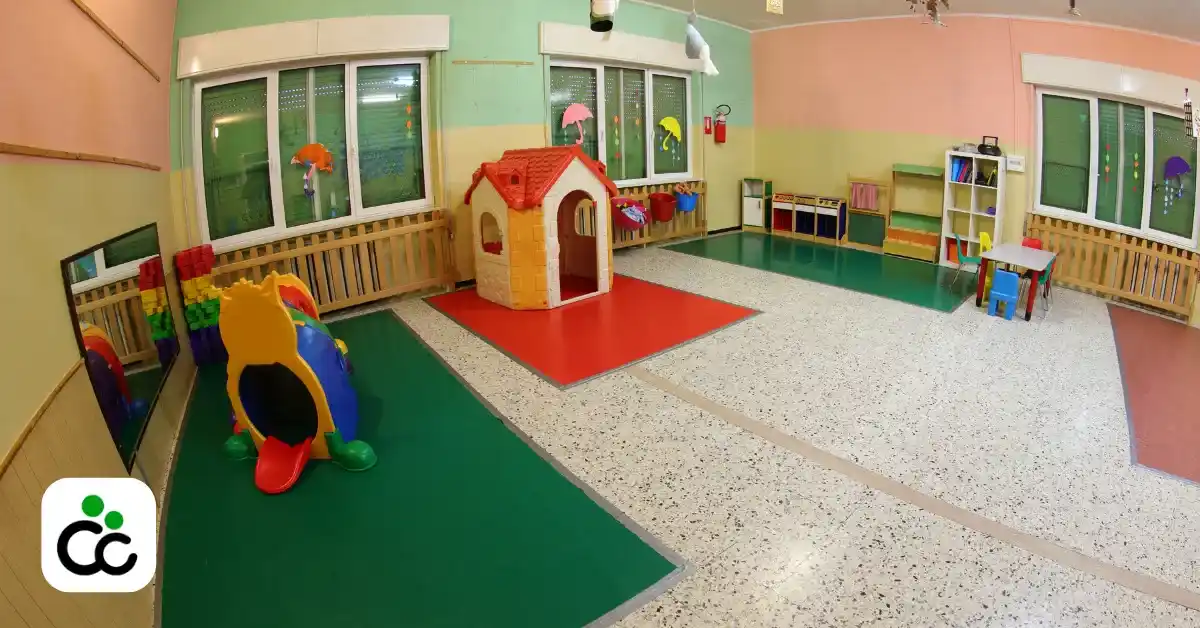Childcare is essential for modern families, providing a safe space for children to learn and grow while parents manage work and personal lives. High-quality care shapes a child's future success by fostering social, emotional, and cognitive development.
Navigating the various childcare options available can be overwhelming for parents. From in-home caregivers to daycare centers, preschool programs, and nanny services, the array of choices can leave parents uncertain about their child's best decision.
This is where we step in as a trusted resource designed to empower parents with the knowledge and tools they need to make informed childcare decisions.
In this guide, we will look into every aspect of childcare selection, from understanding your family's unique needs to researching and evaluating childcare providers, navigating regulatory standards, and fostering positive relationships with caregivers.
Stay tuned as we embark on this journey together, uncovering the secrets to finding the perfect childcare solution for your family's needs.
#Recognize Your Child Care Needs

#Family's Schedule and Requirements
When embarking on the journey to find the right childcare option for your family, it is crucial to begin by considering your family's unique schedule and requirements.
Take a close look at your work commitments, personal obligations, and any other activities that shape your daily routine. Consider factors such as:
Work Hours: Determine your typical work schedule, including any irregular hours or overtime requirements.
Commute Time: Factor in the time it takes to commute to and from work or other commitments.
Other Activities: Consider any extracurricular activities or appointments that your family members are involved in.
#Identify Your Child's Need
Children have unique needs and developmental requirements at different stages of their growth.
When selecting a childcare option, it is essential to consider your child's age, developmental stage, and any special considerations they may have, such as:
Age-Appropriate Activities: Look for childcare providers that offer age-appropriate activities and programs tailored to your child's developmental needs.
Special Needs: If your child has special needs or requires additional support, seek out childcare options that have experience and expertise in accommodating diverse learning styles and abilities.
Socialization Opportunities: Consider the importance of socialization and peer interaction in your child's development, especially during their early years.
Educational Philosophy: Explore different educational philosophies and approaches to childcare, such as Montessori, Reggio Emilia, or play-based learning, and choose one that aligns with your values and goals for your child's education.
#Budget Considerations
Cost is an important factor to consider when choosing a childcare option, and it is essential to assess your budget and financial resources carefully. Take into account factors like:
Fees and Tuition: Consider the tuition fees or monthly rates charged by childcare providers, as well as any additional fees for enrollment, materials, or extracurricular activities.
Extra Expenses: Factor in any additional expenses associated with childcare, such as transportation costs, meals, supplies, or uniforms.
Financial Aid Options: Explore potential financial aid options, such as subsidies, scholarships, or employer-sponsored childcare benefits, to help offset the cost of childcare.
Long-Term Planning: Consider the long-term financial implications of your childcare decision and how it aligns with your overall financial goals and priorities.
#Types of Child Care Options
#In-home Child Care
In-home child care offers the convenience and personalized attention of having a caregiver come directly to your home to care for your child.
This option can be particularly appealing if you prefer a more intimate setting and individualized care for your children.
Pros
Familiar and comfortable environment for the child
Flexible scheduling and potentially more affordable than daycare centers
Cons
Limited socialization opportunities compared to group settings
Reliance on a single caregiver may pose challenges if the caregiver becomes unavailable
Lack of oversight and regulation compared to formal childcare facilities
How to Find Reputable In-home Caregivers?
Seek recommendations from friends, family
Conduct thorough interviews and background checks
Verify qualifications, certifications, and experience
Consider hiring through reputable agencies that specialize in matching families with qualified caregivers
#Daycare Centers
Daycare centers are formal childcare facilities that provide care and supervision for children in a group setting. These centers may offer structured educational programs, age-appropriate activities, and socialization opportunities for children of varying ages.
Pros
Structured learning environment with trained staff
Opportunities for socialization and peer interaction
Often regulated and licensed by state authorities, ensuring safety and quality standards
Cons
Limited flexibility in scheduling compared to in-home care
Higher child-to-caregiver ratios may result in less individualized attention
Potential for exposure to illnesses and germs in group settings
Choosing the Right Daycare Center
Research and visit multiple daycare centers to observe facilities and interact with staff
Inquire about curriculum, educational philosophy, and staff qualifications
Consider location, hours of operation, and cost
Check for licensing and accreditation to ensure compliance with safety and quality standards
#Preschool Programs
Preschool programs offer early childhood education for children typically between the ages of three and five years old.
These programs focus on preparing children for kindergarten and beyond through structured learning activities, socialization opportunities, and developmental support.
Benefits of Preschool Education
Development of cognitive, social, and emotional skills
Preparation for academic success and kindergarten readiness
Exposure to structured learning environments and educational concepts
Selecting the Best Preschool for Your Child
Consider educational philosophy, curriculum, and approach to learning
Evaluate facilities, resources, and teacher-student ratios
Seek recommendations from other parents and visit preschools in person
Look for accreditation and adherence to quality standards in early childhood education
#Nanny Services
Nanny services involve hiring a professional caregiver to provide personalized care and supervision for your child in your home. Nannies may offer flexible scheduling, individualized attention, and continuity of care for families seeking a long-term childcare solution.
Advantages
Personalized care in a familiar environment
Flexibility in scheduling and potentially less exposure to illness compared to group settings
Ability to tailor care to the specific needs and preferences of the family
Drawbacks
Higher cost compared to daycare or preschool programs
Reliance on a single caregiver may pose challenges if the nanny becomes unavailable
Limited socialization opportunities compared to group settings
Understanding the various types of childcare options available is crucial for parents as they navigate the process of selecting the best option for their child and family.
#Search for Childcare Providers using Child Care US Near You

When it comes to finding the best childcare option for you and your child, Child Care US is your ultimate ally.
Our platform provides comprehensive databases of licensed childcare providers across all states in the US, empowering you with the information needed to make informed decisions.
Let's explore how you can use Child Care US to evaluate childcare providers effectively.
With Child Care US, you gain access to a vast array of licensed childcare near you. Our advanced search filters allow you to narrow down your options based on location, services offered, and user ratings, ensuring that you find the perfect fit for your family's needs.
#Reading Reviews and Testimonials
Our platform also enables you to access valuable insights from other parents who have used the services of the childcare providers you are considering.
By reading online reviews and testimonials, you can gain a deeper understanding of the experiences and impressions of families who have firsthand experience with these providers.
Furthermore, Child Care US serves as a valuable resource for parents seeking childcare options, offering comprehensive databases, user reviews, and accreditation verification tools to simplify the decision-making process.
Trust your instincts, prioritize your child's safety and well-being, and let Child Care US guide you in finding the perfect childcare provider for your family.
#Child Care Regulations and Safety Standards
Ensuring the safety and well-being of children is paramount when selecting a childcare provider. Understanding the regulations and safety standards that govern childcare facilities is essential for making informed decisions.
#Understand Local and State Regulations
Childcare facilities are subject to regulations and licensing requirements established by both local and state authorities.
These regulations govern various aspects of childcare provision, including staffing ratios, health and safety standards, educational requirements, and facility conditions.
You must familiarize yourself with the specific regulations applicable to childcare providers in their area.
Local government websites, childcare licensing agencies, and advocacy organizations often provide resources and information outlining these regulations.
Therefore, by understanding the regulatory framework governing childcare, parents can ensure that prospective providers meet minimum standards for quality and safety.
#Importance of Safety Protocols and Emergency Preparedness
Safety protocols and emergency preparedness are fundamental aspects of childcare provision. Childcare providers should have comprehensive policies and procedures in place to address a range of safety concerns, including supervision, hygiene, illness prevention, and emergency response.
Parents should inquire about the provider's safety protocols during the research and evaluation process. Questions to consider are:
How are children supervised during activities and transitions?
What measures are in place to maintain cleanliness and prevent the spread of illness?
How does the provider handle medical emergencies or accidents?
What protocols are in place for fire drills, evacuation procedures, and other emergencies?
#Ensuring Childcare Providers Adhere to Legal Requirements
Parents need to verify that childcare providers stick to legal requirements and maintain compliance with relevant regulations and licensing standards.
This includes confirming that the provider's license is current and in good standing, as well as any additional accreditations or certifications they may hold.
During site visits and interviews, you can inquire about the provider's compliance history and any citations or violations they may have received in the past.
Additionally, you can request to review documentation such as licenses, accreditation certificates, and inspection reports to ensure transparency and accountability.
By actively monitoring and advocating for compliance with legal requirements, you can help ensure that your chosen childcare provider maintains high standards of quality and safety.
#Establish Trust and Communication with Child Care Providers
Building a strong relationship based on trust and open communication with your childcare provider is crucial for ensuring your child's well-being and happiness while in their care.
Let's now explore the key aspects of establishing trust and communication with childcare providers.
#Building Rapport with Caregivers
Building rapport with caregivers is essential for fostering a positive and supportive environment for your child.
Take the time to get to know your child's caregivers on a personal level, and show genuine interest in their background, experiences, and approach to childcare.
Establishing a warm and friendly relationship will not only put you at ease but also help caregivers feel valued and appreciated for their dedication to your child's well-being.
Encourage open communication and collaboration by expressing gratitude for the care and attention they provide to your child. Recognize and acknowledge their efforts, and work together as partners in your child's development and growth.
#Open Lines of Communication
Open lines of communication are essential for addressing concerns, sharing important information, and staying informed about your child's experiences in childcare.
Establish clear channels of communication with your child care provider, including in-person meetings, phone calls, emails, and messaging apps.
Make it a priority to communicate regularly with your child's caregivers to stay updated on your child's progress, daily activities, and any concerns or issues that may arise.
Be proactive in sharing relevant information about your child's preferences, routines, and any changes in their health or behavior.
Encourage caregivers to reach out to you with any questions or updates, and be responsive and approachable in your communication style.
Foster a collaborative partnership based on mutual respect and trust, where both parties feel comfortable sharing feedback and working together to provide the best possible care for your child.
#Addressing Concerns and Providing Feedback
Addressing concerns and providing feedback constructively and respectfully is essential for maintaining a positive and productive relationship with your childcare provider.
If you have any concerns or questions about your child's care, don't hesitate to raise them with the provider promptly.
Approach discussions with an open mind and a willingness to listen to the provider's perspective. Clearly articulate your concerns, provide specific examples if possible, and work together to find mutually acceptable solutions.
Keep the lines of communication open and transparent, and follow up as needed to ensure that any issues are resolved satisfactorily.
Similarly, do not forget to provide positive feedback and praise when warranted. Recognize and celebrate the successes and achievements of your child and the caregivers, and express appreciation for their dedication and commitment to your child's well-being.
By establishing trust, fostering open communication, addressing concerns, and providing feedback effectively, you can build a strong and collaborative relationship with your childcare provider that serves as a foundation for your child's happiness, growth, and development.
#Prepare Your Child for Child Care

As you embark on the journey of selecting a childcare provider for your child, it is essential to prepare both yourself and your little one for this new chapter.
Transitioning to childcare can be a significant milestone for children and parents, but with careful preparation and communication, you can ensure a smooth adjustment for everyone involved.
#Transitioning Tips for Smooth Adjustment
Transitioning to childcare can be a big change for young children, so it is essential to approach the process with sensitivity and patience. Here are some tips to help ease the transition:
Start gradually: If possible, gradually introduce your child to the childcare environment by arranging short visits or orientation sessions before their official start date. This can help familiarize them with the surroundings and caregivers.
Maintain consistency: Stick to a consistent routine and schedule both at home and in childcare to provide a sense of stability and predictability for your child.
Provide comfort objects: Encourage your child to bring along a familiar comfort object, such as a favorite toy or blanket, to provide reassurance during the transition.
Stay positive: Emphasize the positive aspects of childcare and highlight the fun activities and new friends they'll encounter. Remain upbeat and confident to reassure your child that childcare is a safe and enjoyable place.
#Communicating with Your Child About Childcare
Open and honest communication is key to helping your child feel comfortable and secure about starting childcare. Here are some ways to communicate effectively with your child:
Use age-appropriate language: Tailor your explanations and discussions about childcare to your child's developmental level and understanding. Keep explanations simple and straightforward to avoid overwhelming them with information.
Listen to their concerns: Encourage your child to express any fears or worries they may have about starting childcare, and validate their feelings. Reassure them that it is normal to feel nervous about new experiences and that you will be there to support them every step of the way.
Involve them in the process: Empower your child by involving them in the decision-making process and allowing them to contribute their thoughts and preferences. This can help foster a sense of ownership and control over the transition.
#Establishing Routines and Rituals
Establishing consistent routines and rituals can provide comfort and predictability for your child during the transition to childcare. Here are some ideas for creating routines and rituals:
Establish a morning routine: Develop a consistent morning routine that includes activities such as getting dressed, eating breakfast, and saying goodbye before heading to childcare. This can help your child feel grounded and prepared for the day ahead.
Create a goodbye ritual: Develop a special goodbye ritual, such as a hug, kiss, or high-five, to signify the start of the childcare day. This can provide closure and reassurance for your child as you depart.
Establish bedtime rituals: Develop calming bedtime rituals, such as reading a story or singing a lullaby, to help your child wind down and relax before bedtime. Consistent bedtime routines can promote better sleep quality and overall well-being.
By following these tips and strategies, you can help prepare your child for the transition to childcare and lay the foundation for a positive and enriching experience.
#Maintaining Involvement and Monitoring Your Child's Progress
It is crucial to remain actively engaged and vigilant in monitoring your child's well-being and development.
We have mentioned the importance of staying connected with your childcare service provider, keeping tabs on your child's progress, addressing any issues along the way, and more:
#Keep in Touch with Your Childcare Provider
Maintain open lines of communication with your childcare provider to stay informed about your child's daily experiences, activities, and milestones.
Establish regular check-ins, whether in person, over the phone, or via email, to stay connected and address any concerns or questions that may arise.
During these interactions, be sure to ask specific questions about your child's behavior, interactions with peers, and engagement in activities.
Inquire about any significant events or changes in routine that may impact your child's well-being and adjustment to childcare.
Additionally, take advantage of opportunities to participate in parent-teacher conferences, school events, and volunteer opportunities to build rapport with your childcare provider and stay involved in your child's educational journey.
Do not hesitate to ask questions, share insights, and express any concerns you may have.
#Monitoring Your Child's Development and Well-being
From the first tentative steps into childcare to the proud moments of growth and learning, your child's development is a journey worth cherishing.
Keep an eye on their progress, both big and small, and celebrate each milestone as they navigate the exciting world of early childhood education.
Be attuned to your child's cues, whether they are sharing stories of new friendships or expressing frustrations about challenges they are facing.
Your attentive presence ensures that your child feels supported and valued every step of the way.
#Addressing Any Issues or Challenges as They Arise
Despite careful planning and preparation, challenges may arise during your child's time in childcare.
It is essential to address any issues or concerns promptly and collaboratively with your childcare provider to ensure a positive and supportive environment for your child.
When addressing challenges, approach the situation with an open mind and a willingness to listen to your childcare provider's perspective.
Communicate your concerns, expectations, and desired outcomes, and work together to develop a plan of action to address the issue effectively.
Maintain ongoing communication with your childcare provider to monitor progress and evaluate the effectiveness of any interventions or strategies implemented.
Celebrate successes and milestones achieved along the way, and continue to advocate for your child's needs and well-being.
#Final Say
Throughout this guide, we have explored every aspect of the childcare selection process, from understanding your family's needs to evaluating childcare providers, preparing your child for childcare, and maintaining involvement in their progress.
We discussed the various types of childcare options available, the importance of understanding regulations and safety standards, and strategies for establishing trust and communication with childcare providers.
By empowering yourself with knowledge and information, you are better equipped to make informed decisions that prioritize your child's well-being and development.
#FAQs
What are the primary childcare options available?
Common childcare options include daycare centers, in-home childcare, preschool programs, and nanny services, each offering different settings and structures for children's care and development.
How can I ensure the safety of my child in childcare?
Parents can ensure their child's safety by researching providers, visiting facilities, checking for accreditations and licenses, and maintaining open communication with caregivers.
What factors should I consider when selecting a childcare provider?
Important factors to consider include location, cost, provider qualifications, curriculum, safety protocols, and compatibility with family values and preferences.
How can I help my child adjust to childcare?
Parents can help ease the transition by gradually introducing childcare routines, communicating openly with their child about the experience, and maintaining consistency with routines and rituals.
Where can I find childcare providers near me?
You can use online resources, like Child Care US to find childcare service providers near you.
What should I do if I have concerns about my child's childcare experience?
Parents should address concerns directly with the childcare provider, maintaining open communication and working collaboratively to resolve any issues or challenges that arise.




